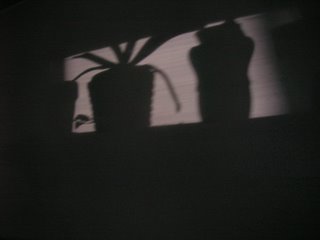How do you keep track of all the notes and pieces of paper and such? she asked.
Keeping track...well, I used to just have a box I threw everything in, all the notes and pieces of paper and cocktail napkins. Then I started carrying notebooks with me wherever I went—the Moleskines I so lovingly discuss and a reporter’s notebook—and now I make notes in them, instead of on shards of paper. That helps. I have filing systems I never refer to, that I really should purge (it being the new year, and all).
I'm paid to write, but it doesn't often feel like fun. How do you keep it fun?
Fun. Freewriting makes it fun for me, and if I have a bit of that in my life, then I’m okay. And writing fiction makes it fun. Something to look forward to. I love writing in my Moleskines (they cast a spell, I swear) and if I can mix up fun with work, I’m okay. I, too, labor over deadlines. I have two deadlines right now for articles for PAGES magazine. Freewriting in my Moleskines keeps the spark alive. In the past, when my interest has flagged, inspirational writing books helped get that spark going again.
How do you know when you have an idea that will sustain you for 200 pages and keep the reader turning the page?
As for ideas that keep nipping at your heels and how to make them long, well, some ideas are teensy and some aren’t. For me, I ponder: Will I be interested in this topic years from now? Since that’s how long it can take to write a book. There are some projects I began as book proposals that I thought I would stay with, and then didn’t. Others—like my book, PEN ON FIRE—kept me long after I thought they would. I've written novels that I later abandoned because I just wasn't interested enough in to revise and do what it takes to sell them. If you’re fascinated with your idea, that’s the main thing, and the main way to keep readers turning the page. The author Chris Bohjalian said when he's involved in a book project, he will abandon it even at page 150 if he's bored with it, because if he’s bored, his readers will be bored.
Platform: when do you know if your platform is big enough?
Good question! I can say that a regional platform can be appealing, and if you’re writing a book that connects to your regional platform, it may be enough. Yet, if your platform is, say, cooking, and you’re doing a book on connecting with adoptive parents, I would think your platform will mean little. If you know an agent, I’d ask her/him. If you don’t know any, I’d find a conference (of which there are a ton—the ASJA conference is in April in NYC—www.asja.org--and is great at making contacts with editors and agents. Take a meeting and ask them. They are great at being blunt and will tell you how it is.
....
Now, visuals help writing,help break up long blocks of text, yes? So here is what I saw one day high on the wall adjacent to where I work. The sun through the window created such gorgeous shadows.

Have a great New Year, full of creative energy, great ideas and lots of stamina to keep your butt in the chair!







No comments:
Post a Comment